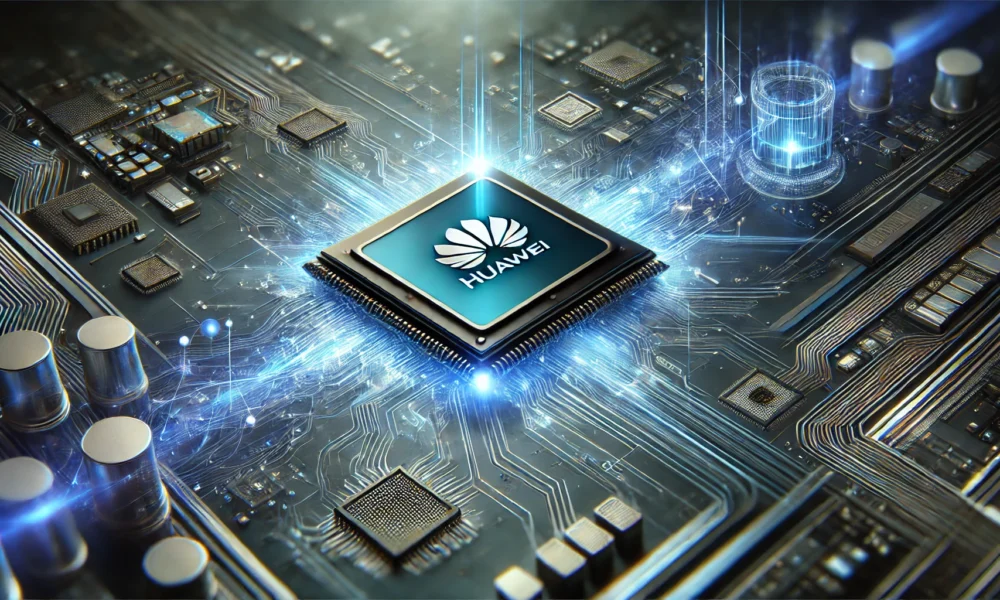Transforming the AI Chip Market: A Look at Huawei’s Ascend 910C
The realm of Artificial Intelligence (AI) chips is experiencing exponential growth, fueled by the rising demand for processors capable of handling intricate AI tasks. As AI applications like machine learning, deep learning, and neural networks continue to advance, the necessity for specialized AI accelerators becomes more pronounced.
Breaking NVIDIA’s Dominance: Huawei’s Ascend 910C Emerges as a Strong Contender
For years, NVIDIA has reigned supreme in the AI chip market with its powerful Graphics Processing Units (GPUs) setting the standard for AI computing globally. Nevertheless, Huawei has emerged as a formidable competitor, especially in China, with its Ascend series challenging NVIDIA’s market dominance. The latest addition to this lineup, the Ascend 910C, boasts competitive performance, energy efficiency, and seamless integration within Huawei’s ecosystem, potentially revolutionizing the dynamics of the AI chip market.
Unraveling Huawei’s Ascend Series: A Deep Dive into the Ascend 910C
Huawei’s foray into the AI chip market is part of its strategic vision to establish a self-sufficient ecosystem for AI solutions. The Ascend series kickstarted with the Ascend 310 tailored for edge computing, followed by the high-performance data center-focused Ascend 910. Launched in 2019, the Ascend 910 garnered recognition as the world’s most potent AI processor, delivering an impressive 256 teraflops (TFLOPS) of FP16 performance.
Huawei vs. NVIDIA: The Battlefield of AI Prowess
While NVIDIA has long been a frontrunner in AI computing, Huawei’s Ascend 910C aspires to provide a compelling alternative, particularly within the Chinese market. The Ascend 910C rivals NVIDIA’s A100 and H100 GPUs, delivering up to 320 TFLOPS of FP16 performance and 64 TFLOPS of INT8 performance, making it apt for a diverse range of AI tasks, from training to inference.
Charting the Future: Huawei’s Strategic Vision
As Huawei’s Ascend 910C takes center stage, the company’s strategic partnerships with tech giants like Baidu, ByteDance, and Tencent solidify its foothold in the AI chip arena. With a keen eye on advancing technologies like quantum computing and edge AI, Huawei’s ambitious plans for the Ascend series signal a promising future brimming with innovation and integration.
The Verdict: Huawei’s Ascend 910C Shakes Up the AI Chip Landscape
In summary, Huawei’s Ascend 910C heralds a new era in the AI chip market, challenging the status quo and offering enterprises a viable alternative to NVIDIA’s dominance. While obstacles lie ahead, Huawei’s relentless pursuit of a robust software ecosystem and strategic alliances bode well for its position in the ever-evolving AI chip industry.
-
What is the Huawei Ascend 910C?
The Huawei Ascend 910C is a high-performance AI (artificial intelligence) chip developed by Huawei Technologies. It is designed to power artificial intelligence applications and tasks, offering superior performance and efficiency. -
How does the Huawei Ascend 910C compare to NVIDIA’s AI chips?
The Huawei Ascend 910C is a bold challenge to NVIDIA in the AI chip market due to its impressive performance metrics. It offers higher processing speeds, improved energy efficiency, and enhanced scalability compared to NVIDIA’s AI chips. -
What applications can benefit from the Huawei Ascend 910C?
The Huawei Ascend 910C is well-suited for a wide range of AI applications, including machine learning, computer vision, natural language processing, and robotics. It can significantly accelerate the performance of these applications, providing faster processing speeds and enhanced capabilities. -
Can the Huawei Ascend 910C be used in data centers?
Yes, the Huawei Ascend 910C is designed for use in data centers and cloud computing environments. Its high performance and energy efficiency make it an ideal choice for powering AI workloads and applications in large-scale computing environments. - How does the Huawei Ascend 910C contribute to Huawei’s overall strategy in the AI market?
The Huawei Ascend 910C is a key component of Huawei’s strategy to establish itself as a leading player in the AI market. By offering a high-performance AI chip that can rival competitors like NVIDIA, Huawei aims to expand its presence in the AI sector and drive innovation in artificial intelligence technologies.
Related posts:
- NVIDIA Introduces the Rubin Platform: A New Generation of AI Chip
- New AI Training Chip by Meta Promises Faster Performance for Next Generation
- Transformation of the AI Landscape by Nvidia, Alibaba, and Stability AI through Pioneering Open Models
- Redefining Market Analysis: Palmyra-Fin’s Innovations in AI Finance


No comment yet, add your voice below!